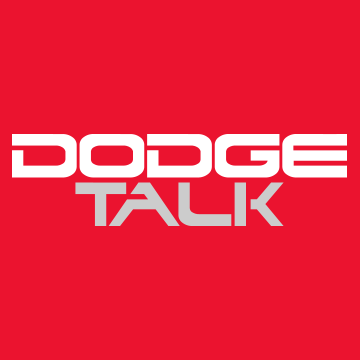Hey everyone, I’m new to the forum but I’ve had my 2013 challenger SXT for almost two years and over the past few months it’s been making a whining noise while I turn the wheel and when I turn the wheel sharply to make a u turn at low speeds it makes a clunking noise. Dealership said challengers do that but I find it hard to believe. I checked the fluid and it was at a normal level. Any input would be greatly appreciated. Thanks 

Whining noise while turning
1 reading
Wdrake
Discussion starter
2 posts
·
Joined 2020
- Add to quote
Hey everyone, I’m new to the forum but I’ve had my 2013 challenger SXT for almost two years and over the past few months it’s been making a whining noise while I turn the wheel and when I turn the wheel sharply to make a u turn at low speeds it makes a clunking noise. Dealership said challengers do that but I find it hard to believe. I checked the fluid and it was at a normal level. Any input would be greatly appreciated. Thanks 
96 posts
·
Joined 2020
Check the shocks. Mine ddidmt make the whining but it did make make I groanin noise . And I for sure had clunks felt like I was rolling over speed bumps on one side . Turned out my front left shock was leaking bad . And the strut mounts are bad as well but didn’t have enough to fix those . The shocks made it go away tho
2,609 posts
·
Joined 2016
Mine had the clunk and groan. Replaced the diff. fluid and added Mopar LSD additive (Mopar p/n 04318060AC). About $10 on Amazon. All's good now!
3,309 posts
·
Joined 2015
What is the replacement schedule for the accessory drive belt? These have a finite life span and should be replaced on schedule.
Clunking can be suspension/steering hardware related.
But it can also be "normal". Normal? Well, yes. Some cars and your car may be included in this have a pretty radical steering setup. By radical I refer to the geometry of the front wheels to deal with a car capable of some speed and a lot of weight to control. This geometry works very well as speed goes up which is why these cars have a pretty good feeling on the road at speed.
But the down side is at real low speed and with the steering wheel at full lock the two front wheels are not quite on the same "page" so to speak when it comes to the turn angle. The outside tire which is flatter and thus has better contact with the pavement controls the turn. The inner tire which is canted over at quite an angle and thus has less contact with the pavement is pretty much along for the ride. As its turn in angle is not quite right the tire can skip/scrub and when it does this it can feel like a "clunk". With some cars with the wheel full lock at higher speeds the inside tire skips so much it mimics the action of an ABS kicking on.
You can see what I'm talking about by on a parking lot turning the wheel full lock then shutting off the engine. It is not a good idea to have the wheel full lock and let the engine run. This can overwork the power steering pump.
Then get out of the car and "sight" down the front wheels. You'll see the outer tire flat on the pavement the inner tire not so much.
I have not bothered to take a pic of my Hellcat -- in a sharp slow turn I hear a clicking which is the tire scrubbing just enough to cause the pads to rattle -- but below is a pic of my Boxster which shows what I'm talking about.
![Image]()
The task you have is to somehow verify the noise is not something wrong but just "normal".
Clunking can be suspension/steering hardware related.
But it can also be "normal". Normal? Well, yes. Some cars and your car may be included in this have a pretty radical steering setup. By radical I refer to the geometry of the front wheels to deal with a car capable of some speed and a lot of weight to control. This geometry works very well as speed goes up which is why these cars have a pretty good feeling on the road at speed.
But the down side is at real low speed and with the steering wheel at full lock the two front wheels are not quite on the same "page" so to speak when it comes to the turn angle. The outside tire which is flatter and thus has better contact with the pavement controls the turn. The inner tire which is canted over at quite an angle and thus has less contact with the pavement is pretty much along for the ride. As its turn in angle is not quite right the tire can skip/scrub and when it does this it can feel like a "clunk". With some cars with the wheel full lock at higher speeds the inside tire skips so much it mimics the action of an ABS kicking on.
You can see what I'm talking about by on a parking lot turning the wheel full lock then shutting off the engine. It is not a good idea to have the wheel full lock and let the engine run. This can overwork the power steering pump.
Then get out of the car and "sight" down the front wheels. You'll see the outer tire flat on the pavement the inner tire not so much.
I have not bothered to take a pic of my Hellcat -- in a sharp slow turn I hear a clicking which is the tire scrubbing just enough to cause the pads to rattle -- but below is a pic of my Boxster which shows what I'm talking about.
The task you have is to somehow verify the noise is not something wrong but just "normal".
-
?
-
?
-
?
-
?
-
?
-
?
-
?
-
?
-
?
-
?
-
?
-
?
-
?
-
?
-
?
-
?
-
?
-
?
-
?
-
?
- posts
- 1.8M
- members
- 44K
- Since
- 2006
A forum community dedicated to all Dodge Challenger owners and enthusiasts. Come join the discussion about performance, modifications, troubleshooting, Hemi Mopar power, power-adders, and more!
Top Contributors this Month
View All
Robs16Hellcat
381 Replies
RyzRT
249 Replies
James72
147 Replies



